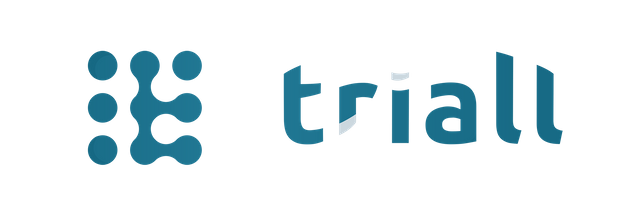
TRIALL INTRODUCTION
As the world grows and seek better ways to deal with new and old diseases, the need for an effective and fast clinical trial process will increase. Clinical research is an integral process in drug and vaccine production. No drug or vaccine can be released into the market if it hasn’t been properly researched on and approved by the relevant authorities.
However, over the last few decades, what was supposed to be man’s saving grace, thorough and well-documented clinical research, is becoming one of its greatest undoing.
A myriad of issues bedevilling the clinical research industry has caused many a researcher to complain bitterly and demand for better solutions.
Triall, a block-chain integrated solution, was developed by a team of specialists, to help solve many of the problems facing clinical research and trials.
First, however, let us examine how clinical researches are carried out.
PHASES OF CLINICAL RESEARCH
Clinical research happens in six phases:
Phase 1: This phase is where the product (drug or vaccine) is tested for safety and dosing. The product is tested using about 20 – 100 persons. Most times, 65% of products pass this stage to the second stage.
Phase 2: The product, at this stage, is tested for efficacy and side effects. The researchers test whether the drug or vaccine will have side effects and work as it was intended to. 33% of products also pass this phase.
Phase 3: In this phase, the researchers are testing if there are other added benefits that the product adds. Also, they compare the product to others in the market to see how well is stacks against other competitors. Better or worse than what is already out there? In the process also, regulatory agencies test the product to be sure it is ready to go into the market. up to 83% of products pass this stage of the testing.
Phase 4: After the product has been released, there is a monitoring of the long-term effects of the product on the population at large.
Clinical researches and trials don’t just happen; they are initiated by sponsors, people or organizations interested in finding solutions to health problems.
These organizations seek specialized organizations such as Contract Research Organizations, CRO. These CROs are now responsible for doing the ground work.
Before moving on, it is important to state here that as technology improves, the mode of carrying research and storing research data has also improved. Many companies now use Electronic Clinical solutions. eClinic solutions help to manage the processes and make it faster.
.jpeg)
Four of the major eClinic solutions in clinical research are:
Electronic Trial Maser File (eTMF): Store and manage essential all trial-related documents
Clinical Trial Management Systems (CTMS): Monitoring the progress and performance of the trial.
Electronic Data Capture (EDC): Record clinical data from participants
Randomization and trial supply management (RTSM): Solutions for double-blind randomization of participations, and supply of investigational products or placebos accordingly.
However, there has been many issues with these platforms. Some of the major issues are:
Fragmentation: There is so much data involved, and so many stakeholders, people who are very invested in the research process. Many times, the enormous amount of data is hard to store in one place, even with the different electronic solutions. There is also the trust issue with data. Because many of these stakeholders span across countries and organizations, and the data used is huge (around 1 million data is used in phase 3 of major clinical researches), these stakeholders sometimes withhold vital data from other parties because of security fears.
Lack of Oversight: Because these eClinical platforms are expensive to use, only big pharmaceutical companies use the platforms, leaving small pharms and academia settling for less-efficient systems.
Data integrity issues: Fabricated data has been a major issue in clinical research.
Recordkeeping Failures: The high volume of data needed means many of these platforms are unable to hold these data properly and this leads to longer development time for products, and in the end increases the research cost.
Low Patient engagement and Reiterations.
WHAT SOLUTIONS DO WE PROVIDE AT TRIALLS?
At Trialls, we deal with these problems through our blockchain-integrated systems.
We help connect all the stakeholders involved in making a clinical trial a success, ranging from the researchers, providers, patients, contributors, maintainers and the entire trial community.
At Trialls, we deal with the fragmentation issues by housing all the stakeholders on one platform, which allows for easy and safe sharing of relevant data.
The data integrity issues are dealt with the use of blockchain and its smart contract technology.
Patients, through the patient level eHealth application, are updated regularly on the progress of the trials.
Having built in a blockchain -integrated clinical trial documentation management system, reiterations are cut off as big and small pharmaceuctical companies now have access to the same eClinical system with reliable and safe data.
In summary, Triall’s solutions are:
Verial eTMF
Verial APIs
Triall CTMS
Triall Connect APIs
TrialWiki
Atena PRM
CONCLUSION:
We live in a world propelled by speed and efficiency. Clinical research and trials no longer need to take forever to be completed, and small medical faculties and pharmaceutical companies don’t need to left behind in accessing top and reliable eClinical systems that make their work easier and faster.
Trialls is bringing it home – fast, efficient and safe eClinical system.
“A sponsored article written for a bounty reward.”
For more information kindly access the links below
Website: https://www.triall.io
Whitepaper: https://www.triall.io/#resources
Twitter: https://twitter.com/triallofficial
Facebook: https://www.facebook.com/triallofficial
Author: Dulo Wegner
0x username: dulowegner